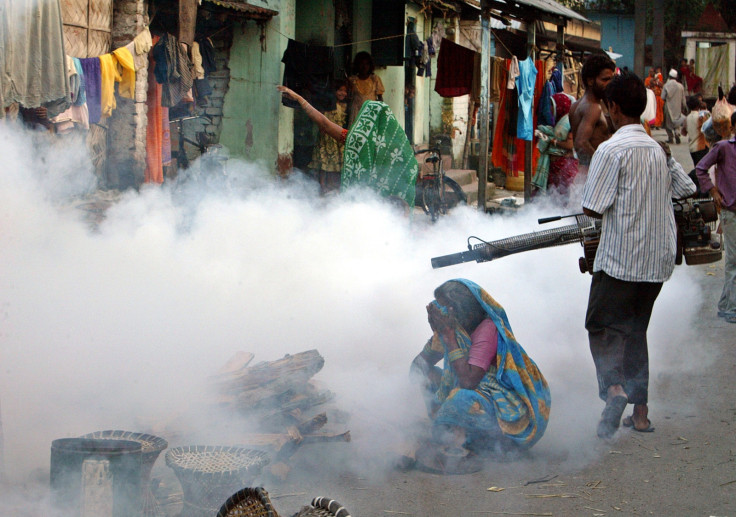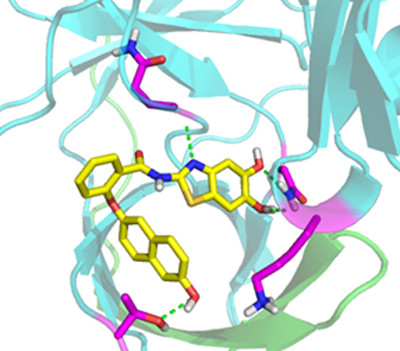Dengue: Molecule that wipes out entire virus populations discovered

Researchers from Johannes Gutenberg University Mainz (JGU) and the Julius Maximilian University of Würzburg have developed new substances that killed most of the dengue virus in a cell culture, raising hopes for a drug to tackle the emerging big killer disease in the tropics.
Even very low concentrations of two inhibitors from the diaryl thioether class of molecules were able to wipe out almost the entire virus population.
Most research so far has focussed on a particular enzyme of the pathogen, the protease known as NS2B/NS3. Inhibitors of similar proteases have been very effective with other viruses, like HIV and Hepatitis.
The Würzburg team led by virologist PD Dr Jochen Bodem, in collaboration with scientists from Mainz University, demonstrated the effect of the new substances on the dengue virus in the safety laboratory.
The next step is to check whether the new active substances have negative effects on higher organisms and whether they inhibit viral replication.

Dengue fever originated in the tropics but has begun to be found in other warm regions of the world, such as the Mediterranean. Thanks to global warming, the mosquitoes are able to expand their habitat. It is endemic in 100 countries with a person hospitalised every minute with dengue.
In 1970, infections occurred in just nine countries. Today the figure stands at over 100.
In India, the virus has been infecting as many as 30 million people annually. Official figures are highly underestimated, found a study with almost 300 times as many people hospitalised as officially claimed.
The World Health Organization estimates that the number of infections globally stands at 390 million a year.
Dengue fever is transmitted by the bite of an Aedes mosquito infected with a dengue virus. The mosquito becomes infected when it bites a person with dengue virus in their blood.
Symptoms and treatment
Usually the infection goes unnoticed since there are no signs of the disease in almost 90% of cases. In the remaining cases, an influenza-type illness develops, which may take a potentially fatal course, especially in children.
In addition to muscle and bone pain accompanied by a high temperature for days, the patient then develops internal bleeding and other severe symptoms. Without intensive medical treatment, around half die.
To date, there is no vaccine or drugs to fight the dengue virus. A vaccine CYD-TDV from Sanofi Pasteur has cleared the first safety hurdle in clinical trials done in India where it showed over 80% efficacy. There are hopes of the vaccine being available next year.
© Copyright IBTimes 2025. All rights reserved.






















